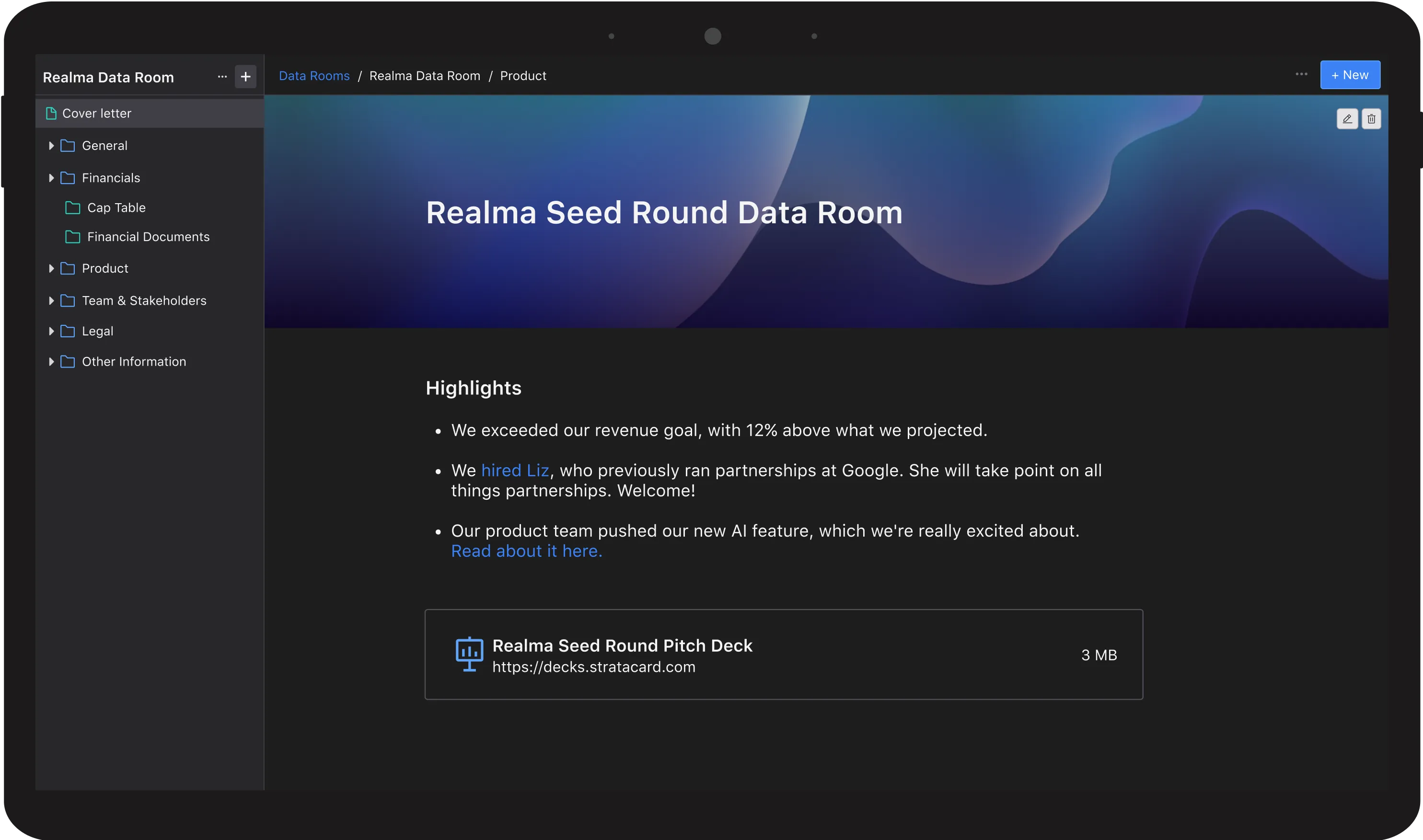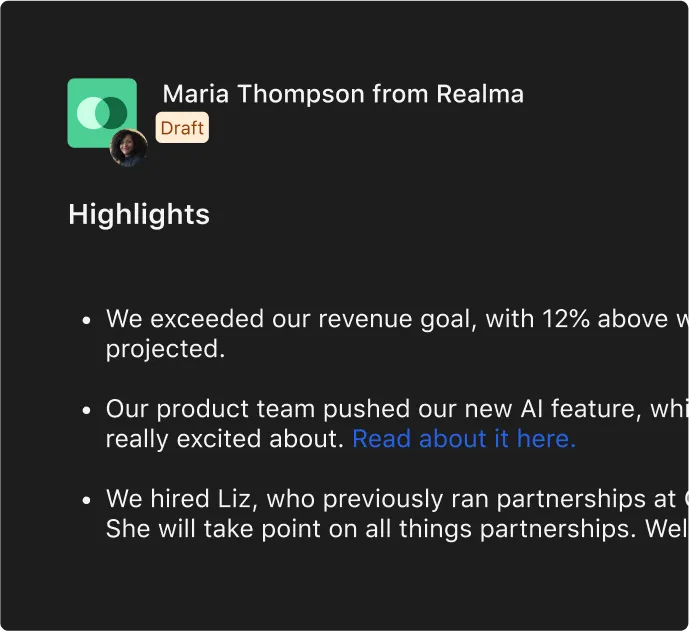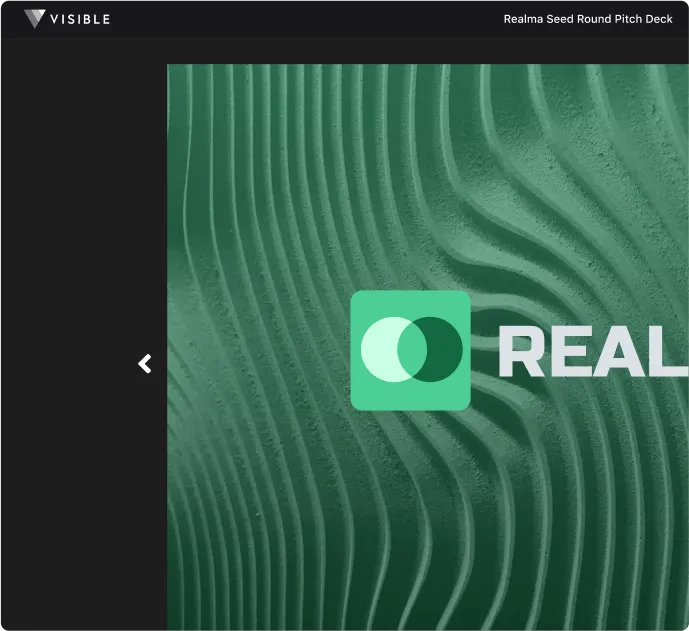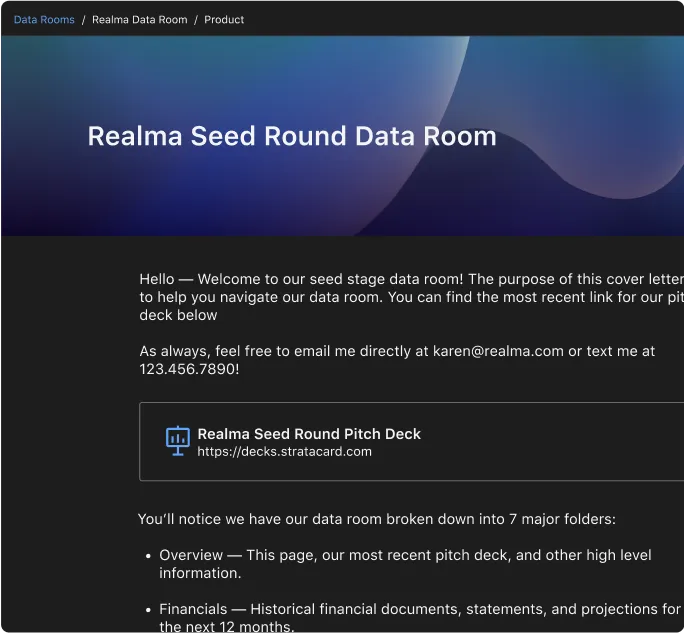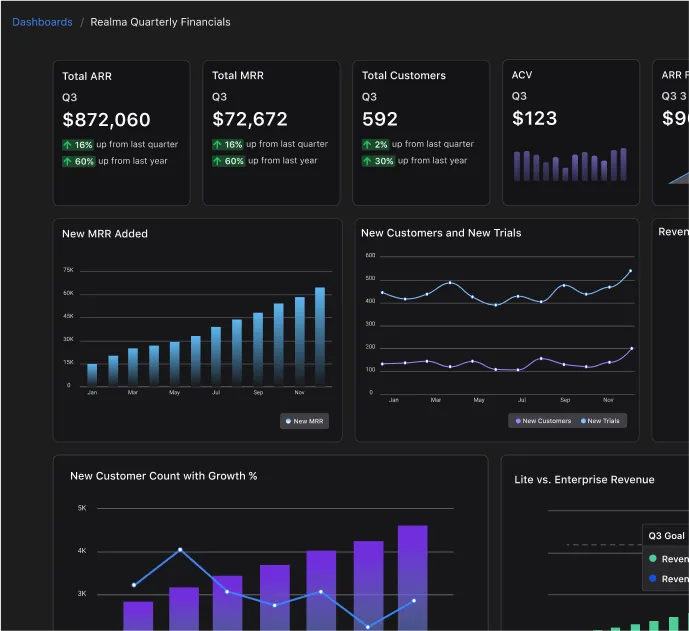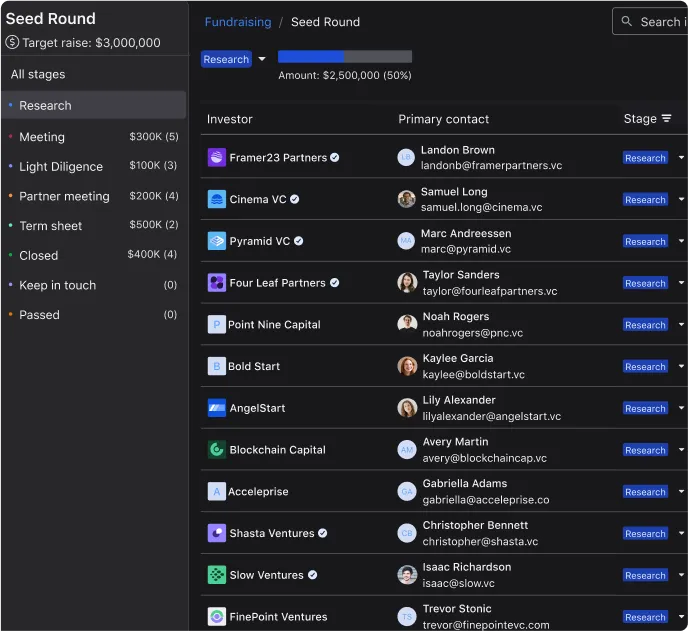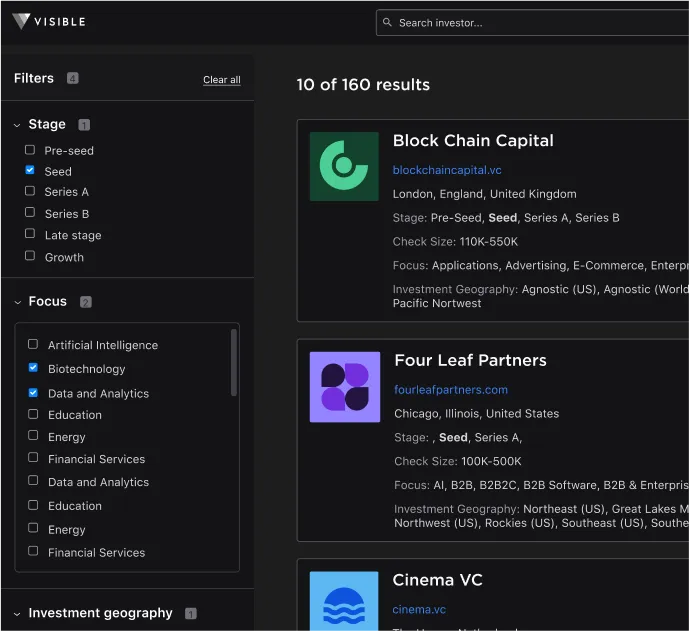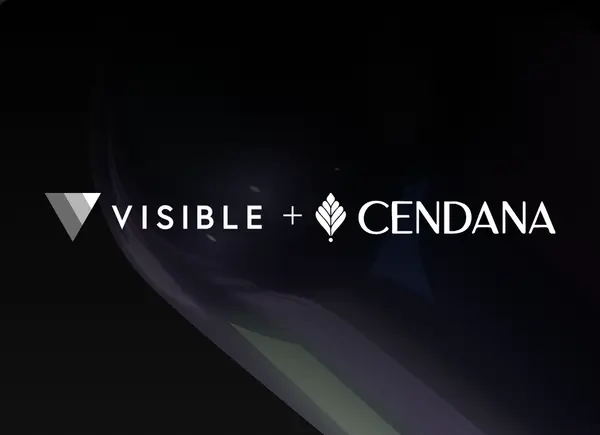Startups often juggle dozens of documents, investor questions, and tight deadlines during the fundraising process. Secure online deal platforms make it easy to share files, set permissions, and track activity without the need for endless email chains. This guide walks you through everything, from basic definitions to pricing plans, so that you can select the right solution for smooth investor relations.
What is a virtual data room, Google data room, and dealroom?
A virtual data room is a secure online space designed specifically for sharing sensitive business documents during fundraising, mergers, or audits. A Google data room, for example, a shared Google Drive folder, lacks built-in audit logs, detailed permission tiers, and expiration controls that specialized platforms enforce. A dealroom is a purpose-built solution that offers granular user roles, real-time activity feeds, and customizable workflows, enabling founders and investors to stay aligned and confident throughout due diligence.
Why Founders Choose the best data room for startups
Founders often search for the best data room for startups when they need a tool that balances simplicity and security. By leveraging built-in folder templates tailored for pitch decks, cap tables, and legal filings, a virtual data room for startups eliminates hours spent on manual organization. Real-time notifications alert teams the moment investors access key documents, speeding up response cycles. Mobile access ensures that busy founders can manage permissions and answer questions on the go, making the best virtual data room for startups both flexible and reliable.
Key Benefits of the best virtual deal room software
Choosing the best virtual deal room software means getting features that matter most to VC-backed founders. Centralized file management consolidates all versions in one place, so you never have to resend outdated decks. Custom watermarks and view-only modes build investor trust by preventing unauthorized downloads. Secure Q&A threads and detailed audit trails accelerate feedback loops—investors can comment directly on documents without sifting through email chains. Many teams also find it’s the best data room for investors because it simplifies post-close monitoring and ongoing portfolio reviews.
Essential data room for investors checklist
Before sharing access, organize folders by topic such as financials, cap table, and legal. Add a cover page that summarizes each section, allowing investors to easily locate critical documents. Apply view-only permissions and watermark every file to deter leaks. Enable two-factor authentication for every user and confirm audit logs are active and easily exportable. Revisiting this data room for investors checklist after your initial setup helps you maintain order as documents evolve.
Comparing the best virtual data room providers
When you compare virtual data room providers, focus on security certifications like SOC 2 and ISO 27001, user limits, and integration options with tools such as CRM or project management software. Look at m&a data room providers if you’re planning a sale or merger, since they often include advanced analytics dashboards and dedicated support teams. In deals involving complex transactions, virtual data room providers in M&A typically offer tighter timelines, specialized due diligence workflows, and bespoke service-level agreements.
Virtual data room pricing and plans
Pricing models vary: some platforms charge per page for one-time deals, others bill per user seat for ongoing access, and many offer tiered subscriptions that bundle features such as bulk uploads, custom branding, and API access. Estimate your document count and reviewer list upfront to avoid unexpected overage fees. If you expect high document turnover, a flat monthly rate may be more predictable and consistent. Always compare virtual data room pricing tiers side by side to find the right balance of cost and capability.
Download and Trial: virtual deal room software download options
To evaluate options, start by downloading a virtual deal room software if you prefer a desktop client with offline capabilities. Many providers offer a free trial of their virtual deal room software, allowing you to test core features. If you have reviewers with limited internet access, consider a virtual deal room software package that includes a free download and an installer. Use the trial period to test collaboration features, security settings, and mobile app performance before making a commitment.
Best Practices for Managing Your Secure Repository
Adopt consistent file naming conventions and version control systems so that every team member can easily locate the latest documents. Define clear roles and permission levels at the outset—separate investor, legal, and internal reviewer groups—to reduce accidental access. Schedule routine audits of user activity and folder structures to catch outdated files and orphaned permissions before they become a risk. Integrating your solution with other tools via API can automate notifications and reduce manual updates.
Security and compliance are critical for regulated sectors. Look for enterprise-grade certifications such as SOC 2 Type II, ISO 27001, GDPR compliance, and data residency options to meet global requirements. This ensures that highly regulated industries can securely store and share documents with confidence.
Modern platforms connect seamlessly with popular customer relationship management systems, project management tools, and messaging apps through APIs. This reduces manual work and ensures that updates in one place sync automatically elsewhere, maintaining a single source of truth across your tech stack.
Support and training vary widely. Seek providers offering dedicated onboarding sessions, live chat assistance, and extensive knowledge bases. Comprehensive tutorials and best-practice guides help new users get up to speed quickly, reducing the risk of misconfiguration or accidental data exposure.
Native smartphone and tablet applications allow teams to review materials, respond to questions, and manage access while traveling or working off-site. Offline file caching and push notifications keep stakeholders engaged regardless of connectivity.
Advanced analytics and machine learning can now automatically categorize documents, flag unusual access patterns, and predict which sections will require more detail. Tools that leverage artificial intelligence to summarize large files speed up due diligence by highlighting key points.
Cost optimization ultimately comes down to effective negotiation and diligent oversight. Consider pay-as-you-go or annual commitments with volume discounts and clear terms for overage fees and additional seat costs. Reviewing billing dashboards regularly can help you identify spikes in activity or storage that may impact your budget.
Measuring success involves tracking metrics such as document view rates, time-to-first-access, and average review duration to quantify efficiency gains. Use built-in reporting to spot sections that generate the most investor questions and refine your materials accordingly. Soliciting direct feedback on ease of navigation uncovers usability improvements. Revisiting these metrics at each fundraising milestone demonstrates the return on your investment.
Armed with these insights and expanded best practices, you’re ready to select, implement, and optimize the ideal deal platform for your fundraising journey.
